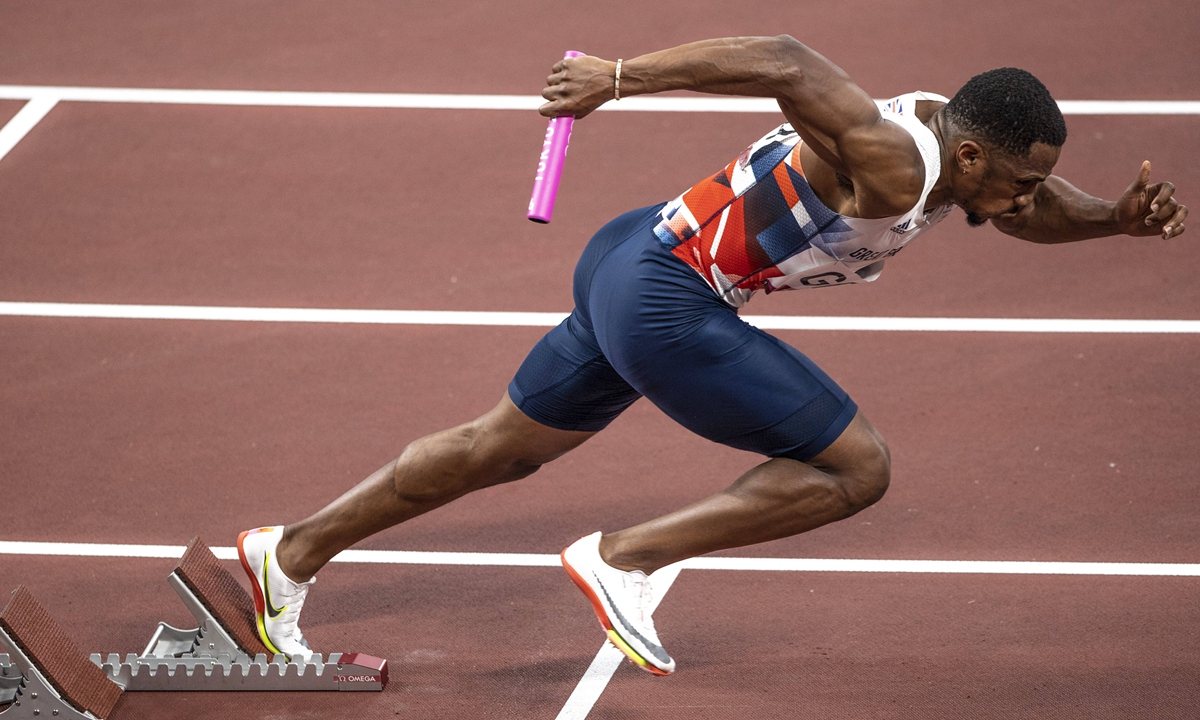SPORT / TRACK AND FIELD
Briton Ujah gets 22-month ban for doping violation

Chijindu Ujah of Great Britain - Italy ITA wins the men& 39s 4x100 meters in front of Great Britain GBR in second place at the Tokyo 2020 Olympic Games, Olympische Spiele, Olympia, OS held in 2021, the game held at the Ariake Arena in Tokyo, Japan. Photo: VCG
British sprinter Chijindu Ujah was banned by the Athletics Integrity Unit (AIU) for 22 months on Monday for a doping violation at 2021's Tokyo Olympics but cleared him of intentionally taking prohibited substances.Ujah was provisionally suspended after Ostarine and S-23 - substances prohibited by the World Anti-doping Agency (WADA) - were detected in his A and B samples following the men's 4x100-meter relay final in which Britain finished second behind Italy.
The AIU, which oversees integrity issues in international athletics including doping, added that the ban was effective from August 6, 2021 and will be in force until June 5, 2023.
Ujah and his teammates Zharnel Hughes, Richard Kilty and Nethaneel Mitchell-Blake were stripped of their silver medal in February after a Court of Arbitration for Sport ruling. Canada were upgraded to silver and China to bronze.
"Obviously, I made a mistake," Ujah told The Guardian. "But people make mistakes. I am not a cheat."
The 28-year-old said a 10-pound ($11.03) supplement caused him to test positive for the prohibited substances.
"I think complacency set in. During the pandemic I relied a lot on Amazon, rather than using the people and resources around me," Ujah said. "It was just convenient, with next-day delivery. And I didn't think anything was wrong with it."
Ujah had said he had "not knowingly or intentionally doped," but Kilty said in February that British Athletics and UK Anti-Doping had "hammered home" their rules, asking athletes not to use uncertified supplements.
"That way, I would never have put these other three guys, my teammates, through what they went through as well as myself."
UKAD said that the AIU announcement marked another sad chapter in the case and for sport in Britain.
"Every national governing body, athlete, coach and member of support staff should take this case as a warning that doping presents a threat to British sport at the highest levels," said UKAD Chief Executive Jane Rumble.
Reuters
